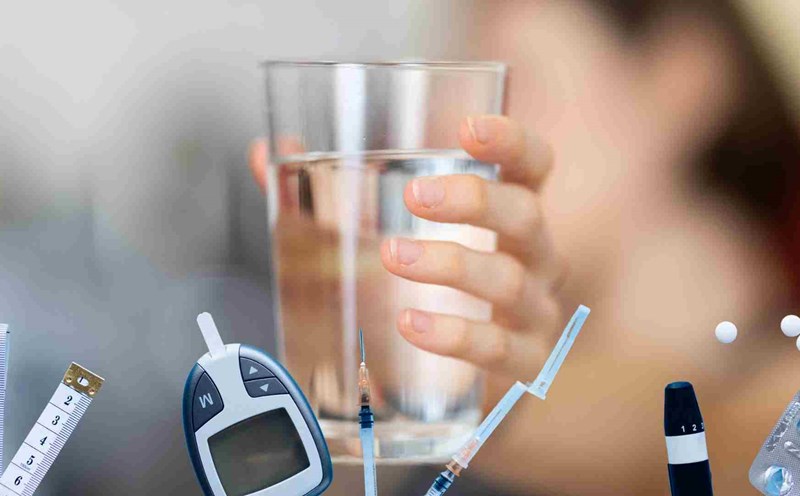thirsty and go to the toilet regularly
Excess sugar in the blood makes the kidneys work harder to remove this sugar. Your kidneys take water from your tissues to dilute glucose and excrete it through urine, leading to more frequent bowel movements.
De hydration and electrolyte loss increases feelings of thirst. So you continue to drink more water. If you drink more sugary drinks like soda, your blood sugar can increase even more.
Always hungry
Your body converts the food you eat into glucose, which is then used by cells to create energy.
However, at some points, glucose cannot reach cells. This can happen because your body cannot make enough insulin hormones needed to put glucose into your cells. Not being able to use glucose can cause energy deficiency, which can make you hungrier than usual.
Feeling too hungry accompanied by weight loss can be a sign of diabetes.
blurred vision
High blood sugar can affect the small blood vessels of the eyes, leading to blurred vision. Over time, this condition can damage the retina of the eyes, leading to diabetic retinopathy.
Always tired
Insulin deficiency and insulin resistance can prevent cells from taking glucose from the blood for energy. Without enough insulin, you may feel very tired and exhausted.
Black spots appear on the skin and skin
Dark patches on the skin such as the phalanx of the neck, armpits, and fingers can be signs of a condition related to diabetes. This is due to high insulin levels, which can be an early sign of prediabetes, diabetes or insulin resistance.
In addition, dermatitis, bacterial and fungal infections, dry skin, and itchy skin can also be potential signs of high blood sugar.











